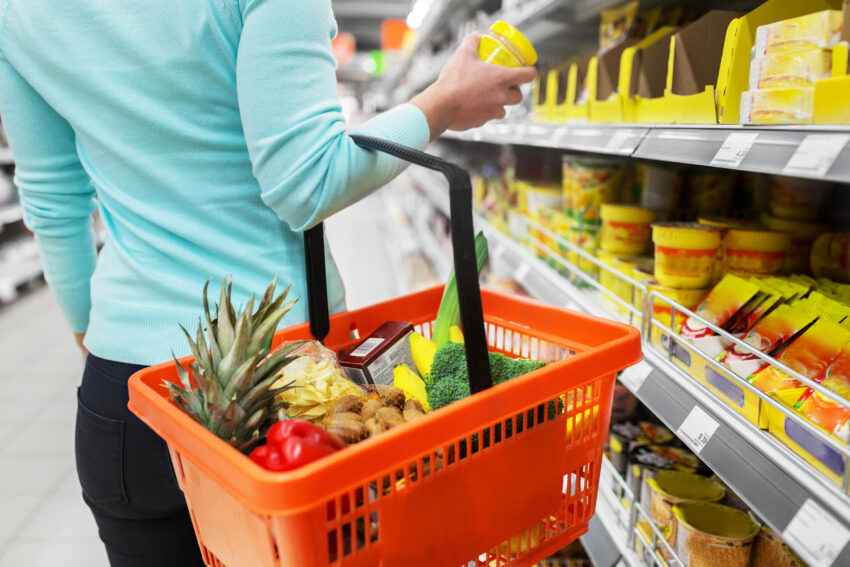Inflation has risen to its highest level in nearly three decades because of a spike in the cost of a range of goods and services, from food and energy to furniture and clothes.
The consumer prices index jumped to 5.4 per cent last month compared with the year before, up from 5.1 per cent in November.
Economists had expected the government’s preferred measure of inflation to edge up to 5.2 per cent last month, with the spread of the Omicron variant supposed to tame consumer spending.
Instead official figures showed the cost of living to be surging at its fastest since March 1992. The jump reflected higher costs in a welter of goods and services, with the biggest impact coming from food and drink, followed by restaurants and hotels then household goods.
Gas and electricity bills, second cars and petrol prices remained at elevated prices, putting further strain on household budgets.
It presents another headache for Boris Johnson’s embattled administration, which is facing calls to cushion the blow from the anticipated 50 per cent rise in gas and electricity bills in April.
The Bank of England expects the consumer prices index to peak at 6 per cent this year although some City economists fear it could exceed 7 per cent. It will take two years for inflation to return to the 2 per cent target.
The spike in inflation increases the odds of the Bank raising interest rates again early next month.
Grant Fitzner, chief economist at the Office for National Statistics, said: “The inflation rate rose again at the end of the year and has not been higher for almost 30 years. The closures in the economy last year have impacted some items but, overall, this effect on the headline rate of inflation is negligible.”
Pat McFadden, shadow chief secretary to the Treasury, said it showed that the cost of living crisis would only get worse.
“Working families are already feeling the crunch. But the triple whammy of an imminent rise in the energy price cap, real wages falling and Tory tax rises coming down the tracks are going to make this crisis even worse,” he said. “Instead of taking action, the government are looking the other way, trapping us in a high-tax, low-growth cycle.”
Rishi Sunak, the chancellor, said: “I understand the pressures people are facing with the cost of living and we will continue to listen to people’s concerns as we have done throughout the pandemic.”
Sunak said the Treasury was providing about £12 billion in support over the next two financial years to help families with the cost of living.
Capital Economics predicted that inflation would hit 7 per cent in April and would stay above 4 per cent throughout this year. It expects Bank of England policymakers to increase rates from 0.25 per cent to 1.25 per cent by December, with the first increase to come early next month.
The energy price cap is due to be increased by Ofgem from April with experts predicting that the average gas and electricity bill would rise from £1,277 to more than £1,900 a year because of record high wholesale prices.
Greg Hands, the energy minister, has admitted that he could not say when the government would be ready to announce plans to mitigate rising energy bills.


